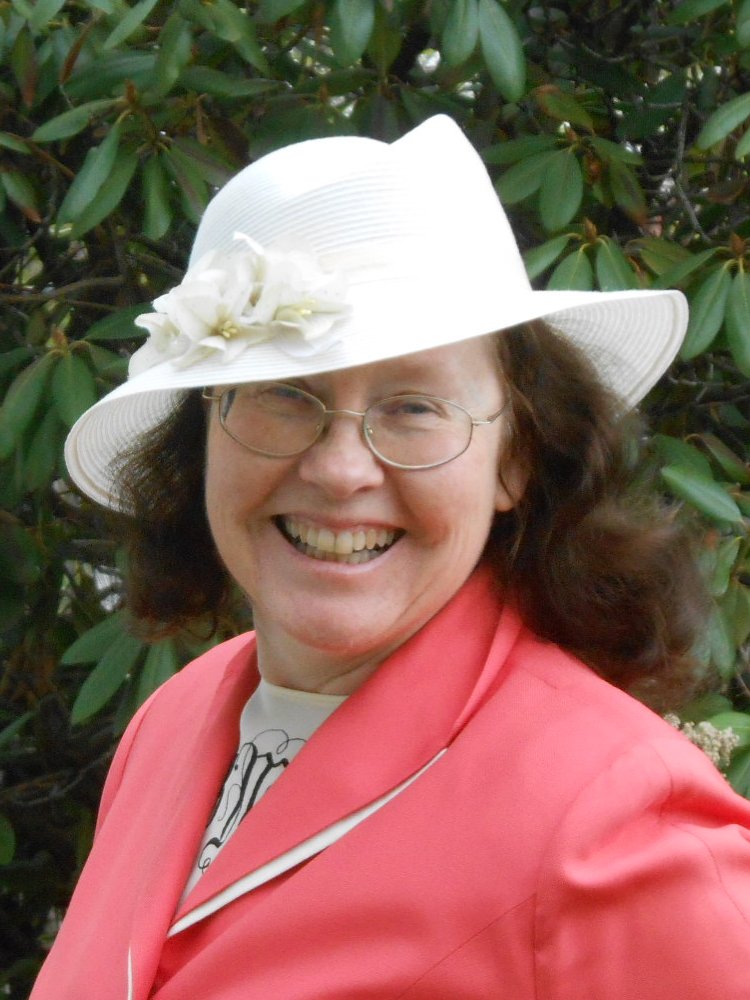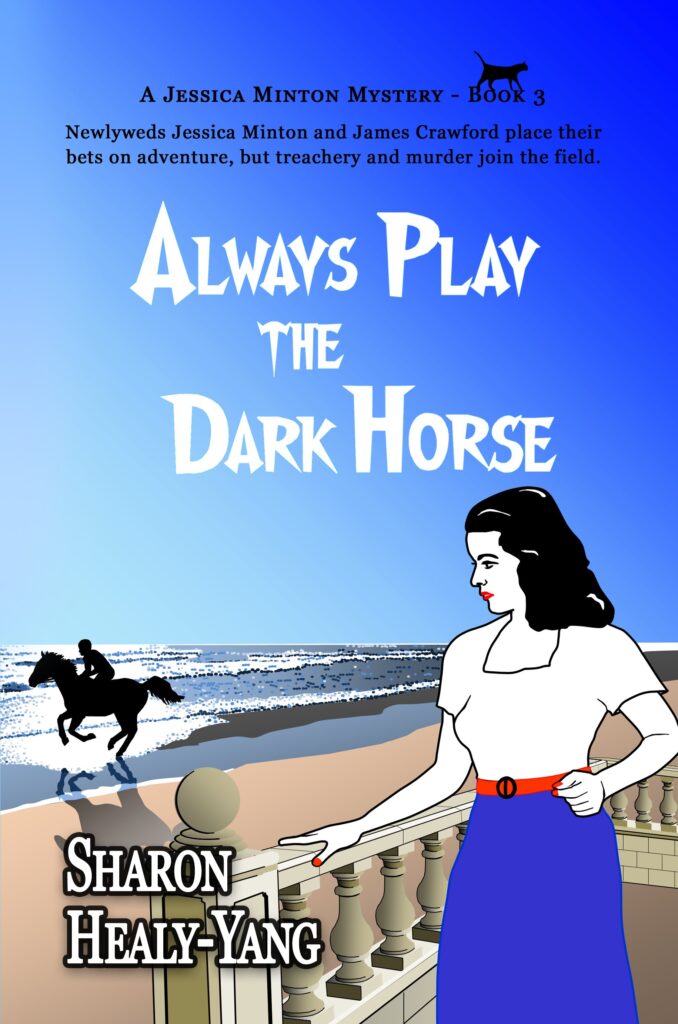

1. How long have you been writing or when did you start?
I’ve always been a story-teller I wrote my first story when I was eight-years-old, about a girl being followed onto a bus by a vampire. Why a vampire would have to take a bus instead of just turning into a bat and flying, I can’t tell you. I’ve since learned to work out those kinds of issues. Even when I was only a few years older, on summer evenings, I would tell the younger kids scary stories about the nearby woods haunted by Native Americans and mystical beings – until parents asked me to stop because the little kids couldn’t get to sleep at night. So, apparently, I always had a talent for grabbing people’s imagination and taking them into a world I created. Now, I’ve focused more on writing mysteries set in the 1940s, an era that fascinates me. I love to carry my readers into the world of mystery that I recreate from noir films and books. It looks as if I still have the compelling voice that used to scare little kids, because my readers tell me that I keep them tense and guessing. I’m also told that Always Play the Dark Horse recreates a sense of summer so that they feel as if they are on a sweltering beach or in the cool of a summer evening.
2. What inspired the idea for your book?
As I mentioned above, I love films of the 1940s. I’m particularly taken by the expressionistic, dreamy, sometimes nightmare, world of film noir or of haunting films like The Uninvited (1944) and the creations of Val Lewton. Mysteries by writers like Frances Crane, Margaret Millar, Cornell Woolrich, Charlotte Armstrong, and George Harmon Coxe also fascinate me with that same ambience. So, since I couldn’t get enough of the films and the writers, I decided to create my own twilight tales of mystery, treachery, and murder. You could actually connect each of the three books in my Jessica Minton series to a film noir. Bait and Switch was influenced by the suspenseful and humorous Nazi fifth-columnist plot in All through the Night; Letter from a Dead Man by the shady machinations of femmes fatales and crooked authorities in Murder, My Sweet. My latest entry, Always Play the Dark Horse, definitely captures a noir tone. However, I was influenced by the dreamy mood of Renoir’s The Woman on the Beach when my main character, Jessica Minton, finds herself tracing her way through the hazards of encountering an old flame, a mysterious veteran with a beautiful horse, a corpse disgorged by the ocean, and her husband’s unexpected secret. It was a joy to create the shimmer of July heat, the fog of ocean storms, and the eeriness of summer evenings for just the right noir effect.
I am also inspired by cinematic and written mysteries’ clever, incisive dialogue. So, I had a ball creating characters who could turn a sharp phrase and use smarts to unravel the tangled webs threatening to ensnare them. I loved giving Jessica Minton the opportunity to spar verbally with her antagonists, as well as to playfully kid with her husband, her friends, and her cat.
Especially important to me, these films and stories usually featured a smart-talking gal who put to rest all the myths about sweet, innocent, dependent women. She was witty and street smart, with her own brand of integrity – leading to the next question.
4. What characters in your book are most similar to people you know?
In all three of the novels, the relationship of my main character Jessica Minton and her sister Liz draws on the loving but tart kidding between my sister-in-law and me. Frequently, people tell me they can hear my voice in a lot of Jessica’s quips. I also borrowed some of my sister-in-law’s actual malapropisms for Liz (“That will cost a pretty arm and a penny”), which inspired me to make up a few for her, myself. Of course, the most important character to come from real life is Jessica’s cat Dusty, based on the first cat I owned. Many of Dusty’s quirks (passion for Polish ham, pickiness about whom she likes) come direct from the original. Dusty’s prowess as a mouser in Always Play the Dark Horse is straight from real life.
However, the most interesting character influence springs, again, from classic-era movies. I tend to cast my characters with actors from that era, building onto the types they usually portray according to where my book leads me. Jessica and Liz, I see as those two smart-talkin’ gals, Joan Bennett and Rosalind Russell, respectively. Jessica’s friend in Dark Horse, Rose, combines the sassiness and loyalty of Barbara Stanwyck with that of my friend Kathy Healey. For the sexy and dangerous wife of Jessica’s old flame, I didn’t draw on anyone I knew but went straight to the luscious and imposing Maureen O’Hara. I guess I went a little against type with her, but readers have told me it worked.
5. If you were to write a spin-off about a side character, which would you pick?
I think that Liz, Jessica’s sister, would make a great character for a spin-off. She’s smart and funny: an impossible combination or madcap and down to earth. I’m considering writing a mystery where she remarrie, and she and her new husband, NYC police detective Leo McLaughlan, head for a honeymoon on a hotel on the Isle of Shoals off New Hampshire and Maine. A big storm hits to keep them and the other residents incommunicado – of course, at least one person ends up murdered. How does that sound?
6. Have you ever killed off a character your readers loved?
Yes! I won’t tell you who it was or in which book because that would be a spoiler. This was a character that more than a few people genuinely liked and wanted even to see married off. Unfortunately, the person just wouldn’t work out and killing that person gave me a chance to pull off a surprise. I also had a character whom I’d planned to keep bad and kill off. However, as I was writing, that character said, “Nope! I’m not that bad and I will not die.” So, this person survived. Who that person is or in which book? Not telling!
7. Whom do you trust for objective and constructive criticism of your work?
I have a group whom I call “my posse” who get to see the next to final draft before the manuscript goes to the editor at my publisher’s. These four friends and my husband are representative of the people I would consider my audience. They like a good mystery that ultimately makes sense but keeps them guessing; they like writing that is evocative but not wordy; they want intelligently and consistently developed characters; and they enjoy writing set in the era which fascinates me. They will tell me honestly what they think and will listen to my responses to their critiques. They don’t try to make me rewrite my book in their image. They accept my voice.
8. Do you play music while you write — and, if so, what’s your favorite?
I do sometimes play music when I write. I can’t listen to anything with lyrics because they distract me from orchestrating my own words. I usually listen to classical music: Satie, Mendelssohn, Copeland, Grieg, Rachmaninoff, or Mussorgsky. While writing Always Play the Dark Horse, I especially listened to Debussy. The dreamy romanticism of his music inspired the ambience of the Jessica’s rides across a beach on the mystery stallion, the secrets lurking behind summer sunshine and within the shadows of a stone mansion, or Jessica’s discoveries in a shipwreck on a foggy beach.
9. What’s your favorite snack or drink?
Tea is my elixir of creativity. Eating ties up my hands so that I can’t keep writing at a rapid clip. Tea is easy to sip when I need a pause. It also doesn’t make me so hyper I can’t keep up with myself, as does coffee. It has to be black tea, and Keemuns, Darjeelings, Queen Elizabeth blend, and Cherry Fig are my especial favorites for writing. Tea is especially nice when working out on the front porch on a brisk fall day.
10. What do you think are the best ways to improve writing skills?
How to become a better writer?
I think the best way to improve your writing skills is to write. Constantly. Like an athlete doing workouts or a musician practicing, you’ve got to keep working at your talent to hone it to the highest level. Now, writing alone isn’t enough. You need some outside perspectives because you aren’t always the best judge of where you are going wrong or where you’ve hit the sweet spot. Nevertheless, you must keep in mind what your goal is in writing, so that you can accurately evaluate criticism. Sometimes people may criticize what you are writing because it’s not how they would do it. You have to remember that you are the spinner of your tale; you are writing your own story not someone else’s. It’s a delicate balance, being able to tell where another’s observations are going to make you a better writer or will pull you away from your goal.
Also keep in mind that reading is important as writing to improve your ability to create. Look to writers you admire to see how they craft their work. Never slavishly copy, but you can use their influence to help you build a foundation for finding your own voice.
Finally, never give up. Write for the joy of creating a world for yourself and your readers. Getting published and making a lot of money isn’t in the cards for most of us, especially in a world where forms of entertainment have become so standardized and homogenized. So, stay true to your own vision.